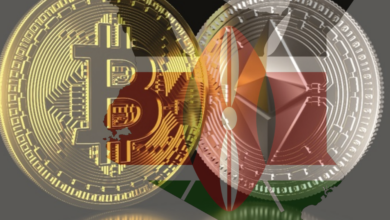Exploring DeFi Coins: What Every Investor Should Know

Decentralized Finance (DeFi) Coins:
Decentralized Finance, or DeFi for short, has emerged as one of the most exciting and transformative trends in the cryptocurrency and blockchain space. DeFi refers to a wide range of financial services and applications built on blockchain technology, primarily the Ethereum network, which seeks to decentralize and democratize traditional financial systems.
At the heart of the Decentralized Finance ecosystem are cryptocurrencies designed to serve various purposes within decentralized applications (dApps) and smart contracts. These cryptocurrencies are often referred to as “DeFi coins” and play a crucial role in enabling the functionalities and services offered by DeFi platforms. In this comprehensive note, we will delve deep into the world of DeFi coins, exploring their characteristics, use cases, challenges, and the broader impact of Decentralized Finance on the financial industry.
Understanding DeFi Coins
DeFi coins are digital assets that power and facilitate various functions within the Decentralized Finance ecosystem. These coins are typically built on blockchain platforms like Ethereum and are governed by smart contracts, which are self-executing agreements with the terms of the contract directly written into code. Smart contracts enable the automation of financial transactions and services, reducing the need for intermediaries like banks and traditional financial institutions.
The most common Decentralized Finance coins are based on Ethereum’s ERC-20 token standard, although other blockchain networks are also emerging in the DeFi space. These coins are used for a wide range of purposes, including:
Lending and Borrowing: Decentralized Financeplatforms like Compound, Aave, and MakerDAO allow users to lend their assets and earn interest or borrow assets by providing collateral. DeFi coins often serve as collateral within these platforms.
Decentralized Exchanges (DEXs): DEXs like Uniswap, SushiSwap, and PancakeSwap enable users to trade cryptocurrencies directly without relying on centralized exchanges. Decentralized Finance coins are used as trading pairs and liquidity providers on these platforms.
Yield Farming and Liquidity Provision: Yield farming involves providing liquidity to Decentralized Finance protocols in exchange for rewards. DeFi coins are often staked or locked in smart contracts to generate yields.
Governance: Many Decentralized Finance projects have implemented governance tokens that allow holders to participate in decision-making processes. These tokens are used to vote on proposals related to protocol upgrades and changes.
Insurance: Decentralized Finance insurance platforms like Nexus Mutual use DeFi coins as a means to provide coverage against smart contract vulnerabilities and hacks.
Asset Management: DeFi platforms offer users the ability to manage their portfolios and assets through various DeFi coins and tokens.
Key Characteristics of DeFi Coins
DeFi coins exhibit several key characteristics that distinguish them from traditional cryptocurrencies and make them essential components of the DeFi ecosystem:
Interoperability: DeFi coins are often designed to be interoperable with other DeFi platforms and applications, enabling seamless integration and collaboration between different projects.
Programmability: Smart contracts underpinning DeFi coins allow for programmable financial services. This means that DeFi coins can be used to create complex financial instruments and services automatically executed by code.
Transparency: Transactions and holdings of DeFi coins are recorded on public blockchains, providing full transparency and auditability of the DeFi ecosystem.
Decentralization: DeFi coins are not controlled by a central authority, and their operation is governed by code and smart contracts. This decentralization is a core principle of the DeFi movement.
Permissionless: Access to DeFi platforms and the ability to use DeFi coins is generally permissionless, meaning anyone with an internet connection can participate.
Popular DeFi Coins and Their Use Cases
Several DeFi coins have gained significant popularity and play pivotal roles within the DeFi ecosystem. Here are some of the most notable DeFi coins and their primary use cases:
Ethereum (ETH): While Ethereum is not exclusively a DeFi coin, it is the foundation for the majority of DeFi projects. ETH is used for gas fees, staking, and governance on DeFi platforms.
Uniswap (UNI): UNI is the native token of the Uniswap decentralized exchange, where users can swap various cryptocurrencies without intermediaries. UNI holders also participate in governance decisions.
Aave (AAVE): AAVE is the governance token of the Aave lending and borrowing platform. Users can stake AAVE tokens to access discounts on borrowing fees.
Compound (COMP): COMP governs the Compound lending protocol, allowing users to earn interest on deposited assets and borrow other assets.
Maker (MKR) and DAI: MakerDAO’s MKR token is used for governance, while DAI is a stablecoin generated by collateralizing assets on the Maker platform.
SushiSwap (SUSHI): SUSHI is the native token of the SushiSwap decentralized exchange and provides liquidity providers with rewards.
Curve Finance (CRV): CRV is used on the Curve Finance platform for stablecoin swapping with low slippage.
Synthetix (SNX): SNX is used to create synthetic assets that track the value of real-world assets like commodities and currencies.
Yearn.finance (YFI): YFI is the governance token for the Yearn.finance platform, which automates yield generation strategies for users.
Balancer (BAL): BAL is the governance token for the Balancer automated portfolio management platform, which enables liquidity provision with customizable portfolios.
Challenges and Risks Associated with Decentralized Finance Coins
While the DeFi space has seen rapid growth and innovation, it also presents several challenges and risks:
Smart Contract Risks: Vulnerabilities in smart contracts can lead to hacks and significant financial losses. DeFi projects must undergo rigorous security audits.
Regulatory Uncertainty: DeFi coins and platforms operate in a regulatory gray area, and regulatory actions could impact their legality and use.
Market Volatility: DeFi coins are subject to the extreme volatility of the cryptocurrency market, leading to potential price fluctuations.
Scalability: Some DeFi platforms struggle with scalability issues, resulting in high gas fees and slower transaction processing times.
User Errors: Users must be cautious when interacting with DeFi platforms, as errors in transactions or smart contract interactions can lead to irreversible losses.
The Broader Impact of DeFi
DeFi has the potential to disrupt traditional financial systems by making financial services more accessible, transparent, and inclusive. It allows individuals to have greater control over their finances and access financial services without relying on banks or intermediaries. However, the rapid development of DeFi also raises concerns about regulatory compliance, security, and the need for user education.
These coins are at the forefront of a financial revolution, where traditional banking systems are being challenged and decentralized alternatives are emerging.
These coins play essential roles within the DeFi ecosystem, enabling various financial services and applications. While the DeFi space offers significant opportunities, it also carries risks that users and investors must carefully consider.
As the DeFi landscape continues to evolve, it will be essential to monitor developments, innovations, and regulatory changes that may shape the future of decentralized finance.




